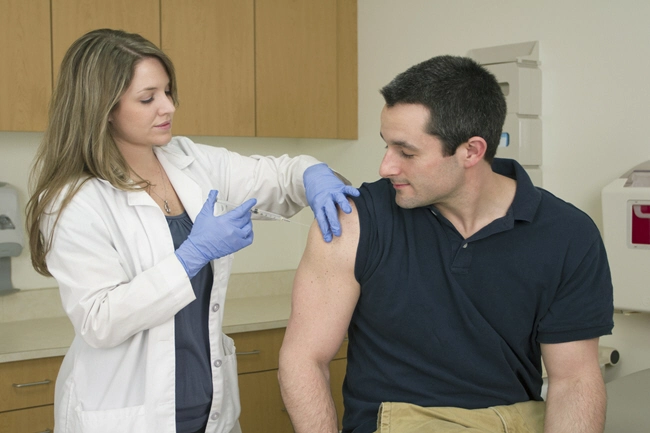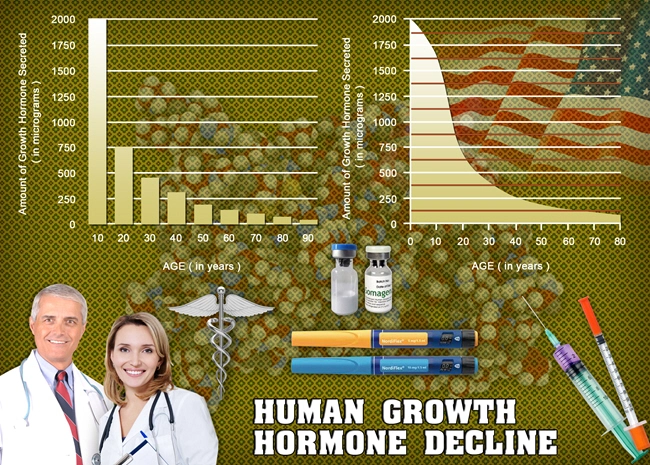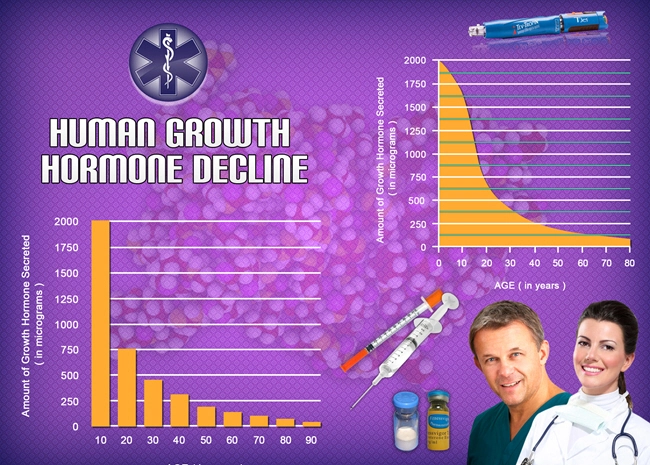
Introduction to Premature Ejaculation
Premature ejaculation (PE) is a common sexual dysfunction among American males, characterized by ejaculation that occurs sooner than desired, either before or shortly after sexual penetration, causing distress and frustration. This condition can significantly impact the quality of life and intimate relationships. Understanding the biological mechanisms behind PE is crucial for developing effective management strategies.
The Biological Clock of Ejaculation
The process of ejaculation is governed by a complex interplay of neurological and hormonal signals. The biological clock of ejaculation involves the central nervous system, which regulates the timing of ejaculation through a series of reflexes. The key players include the spinal ejaculation generator, which coordinates the motor neurons responsible for ejaculation, and the brain, which modulates these reflexes through various neurotransmitters such as serotonin and dopamine.
Neurotransmitters and Their Role
Serotonin, a neurotransmitter, plays a pivotal role in the regulation of ejaculation. Higher levels of serotonin in the synaptic clefts are associated with delayed ejaculation, while lower levels are linked to premature ejaculation. Selective serotonin reuptake inhibitors (SSRIs) are often prescribed to increase serotonin levels and prolong the time to ejaculation. Dopamine, on the other hand, can accelerate ejaculation, highlighting the delicate balance required for normal ejaculatory function.
Genetic and Hormonal Influences
Genetic factors may predispose certain individuals to PE. Studies have identified specific genetic markers that are more common in men with PE, suggesting a hereditary component. Hormonal imbalances, such as elevated thyroid levels or low testosterone, can also influence ejaculatory control. Addressing these underlying issues can be an essential part of managing PE.
Psychological Factors
Psychological factors, including anxiety, stress, and relationship issues, can exacerbate PE. Performance anxiety, in particular, can create a vicious cycle where the fear of rapid ejaculation leads to increased anxiety, further shortening the time to ejaculation. Cognitive-behavioral therapy (CBT) and other psychological interventions can be effective in breaking this cycle and improving ejaculatory control.
Behavioral Techniques
Several behavioral techniques have been developed to help men gain better control over their ejaculation. The "stop-start" method involves pausing sexual activity when ejaculation feels imminent and resuming once the sensation has subsided. The "squeeze" technique involves applying pressure to the base of the penis to delay ejaculation. These methods require practice and patience but can be effective in prolonging the time to ejaculation.
Pharmacological Interventions
In addition to SSRIs, other pharmacological options include topical anesthetics, which can be applied to the penis to reduce sensitivity and delay ejaculation. Tramadol, an opioid analgesic, has also been used off-label for its ejaculatory delay properties. However, these treatments should be used under medical supervision due to potential side effects.
Lifestyle Modifications
Lifestyle factors such as diet, exercise, and sleep can influence sexual health. Regular physical activity can improve overall well-being and reduce stress, potentially benefiting ejaculatory control. A balanced diet and adequate sleep are also important for maintaining hormonal balance and reducing the risk of PE.
Conclusion: A Holistic Approach
Managing premature ejaculation requires a holistic approach that addresses the biological, psychological, and lifestyle factors contributing to the condition. By understanding the biological clock of ejaculation and the various factors that influence it, American males can take proactive steps to improve their sexual health and enhance their quality of life. Collaboration with healthcare providers to develop a personalized treatment plan is essential for achieving long-term success in managing PE.
Contact Us Today For A Free Consultation
Dear Patient,
Once you have completing the above contact form, for security purposes and confirmation, please confirm your information by calling us.
Please call now: 1-800-380-5339.
Welcoming You To Our Clinic, Professor Tom Henderson.

- Unravelling the Rush: Unmasking the Realm of Premature Ejaculation [Last Updated On: February 25th, 2025] [Originally Added On: February 25th, 2025]
- Confronting the Clock: Understanding the Science of Premature Ejaculation [Last Updated On: February 26th, 2025] [Originally Added On: February 26th, 2025]
- Unveiling the Mystery: The Underlying Causes of Premature Ejaculation [Last Updated On: February 27th, 2025] [Originally Added On: February 27th, 2025]
- Unraveling the Complexity of Performance: The Psychological Underpinnings of Premature Ejaculation [Last Updated On: February 28th, 2025] [Originally Added On: February 28th, 2025]
- Mastering the Art of Long-lasting Intimacy: An In-depth Look at Techniques to Delay Ejaculation [Last Updated On: February 28th, 2025] [Originally Added On: February 28th, 2025]
- Premature Ejaculation: Debunking Myths and Providing Facts for American Men [Last Updated On: March 1st, 2025] [Originally Added On: March 1st, 2025]
- Sorting Through the Shadows: Debunking the Misconceptions About Premature Ejaculation [Last Updated On: March 1st, 2025] [Originally Added On: March 1st, 2025]
- Introduction Into Early Emission Hormonal Disorders [Last Updated On: March 2nd, 2025] [Originally Added On: March 2nd, 2025]
- Comprehensive Overview of Premature Ejaculation: Causes, Diagnosis, and Treatment Options [Last Updated On: March 3rd, 2025] [Originally Added On: March 3rd, 2025]
- Understanding Premature Ejaculation: Impacts and Management Strategies [Last Updated On: March 4th, 2025] [Originally Added On: March 4th, 2025]
- Comprehensive Guide to Understanding and Managing Premature Ejaculation [Last Updated On: March 5th, 2025] [Originally Added On: March 5th, 2025]
- Understanding and Managing Delayed Ejaculation: Psychological and Behavioral Strategies [Last Updated On: March 6th, 2025] [Originally Added On: March 6th, 2025]
- Managing Performance Anxiety in Premature Ejaculation: Strategies for Psychological and Physical Well-being [Last Updated On: March 7th, 2025] [Originally Added On: March 7th, 2025]
- Mastering the Clock: Hormonal Influences on Ejaculatory Control and Premature Ejaculation in American Men [Last Updated On: March 7th, 2025] [Originally Added On: March 7th, 2025]
- Unraveling the Mystery: A Deep Dive into Premature Ejaculation in American Men [Last Updated On: March 7th, 2025] [Originally Added On: March 7th, 2025]
- Comprehensive Guide to Managing Premature Ejaculation for American Men: Causes, Treatment, and Coping [Last Updated On: March 8th, 2025] [Originally Added On: March 8th, 2025]
- Managing Premature Ejaculation: Natural Remedies and Behavioral Techniques for Male Sexual Health [Last Updated On: March 9th, 2025] [Originally Added On: March 9th, 2025]
- Exploring the Dual-Use Potential of Erectile Dysfunction Medications in Treating Premature Ejaculation [Last Updated On: March 12th, 2025] [Originally Added On: March 12th, 2025]
- Mastering Your Heartbeat: Techniques for American Males to Gain Control Over Rapid Heart Rhythms [Last Updated On: March 13th, 2025] [Originally Added On: March 13th, 2025]
- Mindfulness and Mastery: Transforming Premature Ejaculation Through Conscious Control [Last Updated On: March 15th, 2025] [Originally Added On: March 15th, 2025]
- Managing Premature Ejaculation: Communication, Techniques, and Professional Support for American Men [Last Updated On: March 18th, 2025] [Originally Added On: March 18th, 2025]
- Nervous System's Role in Premature Ejaculation: Causes, Treatments, and Future Research [Last Updated On: March 18th, 2025] [Originally Added On: March 18th, 2025]
- Managing Premature Ejaculation: Diet, Exercise, Stress, Sleep, and Communication Strategies for American Males [Last Updated On: March 19th, 2025] [Originally Added On: March 19th, 2025]
- Managing Premature Ejaculation: Fast Forward and Slow Down Approaches for American Men [Last Updated On: March 20th, 2025] [Originally Added On: March 20th, 2025]
- Managing Premature Ejaculation: A Holistic Approach to Sexual Health [Last Updated On: March 20th, 2025] [Originally Added On: March 20th, 2025]
- Managing Premature Ejaculation: Medical, Behavioral, and Lifestyle Approaches for American Males [Last Updated On: March 20th, 2025] [Originally Added On: March 20th, 2025]
- Effective Techniques for Managing Premature Ejaculation in American Males [Last Updated On: March 20th, 2025] [Originally Added On: March 20th, 2025]
- Anxiety's Role in Premature Ejaculation: Insights and Management Strategies for American Men [Last Updated On: March 20th, 2025] [Originally Added On: March 20th, 2025]
- Premature Ejaculation's Social Impact: Psychological, Relational, and Professional Effects on American Men [Last Updated On: March 20th, 2025] [Originally Added On: March 20th, 2025]
- Managing Premature Ejaculation in Casual Relationships: Strategies for American Men [Last Updated On: March 21st, 2025] [Originally Added On: March 21st, 2025]
- Physical Fitness Boosts Sexual Health, Helps Manage Premature Ejaculation in Men [Last Updated On: March 21st, 2025] [Originally Added On: March 21st, 2025]
- Dietary Strategies to Manage Premature Ejaculation in American Men [Last Updated On: March 21st, 2025] [Originally Added On: March 21st, 2025]
- Countdown Challenge: Exercises to Overcome Premature Ejaculation in American Men [Last Updated On: March 21st, 2025] [Originally Added On: March 21st, 2025]
- Premature Ejaculation: Emotional, Financial Impacts and Treatment Options for American Men [Last Updated On: March 22nd, 2025] [Originally Added On: March 22nd, 2025]
- Premature Ejaculation: Causes, Diagnosis, and Effective Treatment Options for American Men [Last Updated On: March 23rd, 2025] [Originally Added On: March 23rd, 2025]
- Sleep's Role in Enhancing Sexual Stamina and Managing Premature Ejaculation in American Males [Last Updated On: March 23rd, 2025] [Originally Added On: March 23rd, 2025]
- Understanding and Managing Premature Ejaculation: A Holistic Approach for American Men [Last Updated On: March 23rd, 2025] [Originally Added On: March 23rd, 2025]
- Breaking the Silence on Premature Ejaculation: Empowering American Men [Last Updated On: March 23rd, 2025] [Originally Added On: March 23rd, 2025]
- Exploring Non-Pharmacological Strategies for Managing Premature Ejaculation in American Men [Last Updated On: March 24th, 2025] [Originally Added On: March 24th, 2025]
- Managing Premature Ejaculation: A Patient's Journey to Control and Confidence [Last Updated On: March 24th, 2025] [Originally Added On: March 24th, 2025]
- Transforming Premature Ejaculation into Deeper Intimacy and Connection [Last Updated On: March 24th, 2025] [Originally Added On: March 24th, 2025]
- Psychological Interventions for Premature Ejaculation in American Men: A Comprehensive Guide [Last Updated On: March 24th, 2025] [Originally Added On: March 24th, 2025]
- Managing Premature Ejaculation: Understanding and Overcoming Sexual Dysfunction in American Males [Last Updated On: March 24th, 2025] [Originally Added On: March 24th, 2025]
- Overcoming Premature Ejaculation: Success Stories and Strategies for American Men [Last Updated On: March 24th, 2025] [Originally Added On: March 24th, 2025]
- Enhancing Sexual Endurance: Patience and Techniques for Overcoming Premature Ejaculation [Last Updated On: March 24th, 2025] [Originally Added On: March 24th, 2025]
- Managing Premature Ejaculation: Strategies and Solutions for American Men [Last Updated On: March 25th, 2025] [Originally Added On: March 25th, 2025]
- Managing Premature Ejaculation: A Holistic Approach to Enhancing Sexual Endurance [Last Updated On: March 25th, 2025] [Originally Added On: March 25th, 2025]
- Managing Premature Ejaculation: Techniques and Strategies for American Men [Last Updated On: March 25th, 2025] [Originally Added On: March 25th, 2025]
- Tech Advances in Managing Premature Ejaculation: Apps and Digital Tools [Last Updated On: March 25th, 2025] [Originally Added On: March 25th, 2025]
- Foreplay Techniques to Manage Premature Ejaculation in American Males [Last Updated On: March 25th, 2025] [Originally Added On: March 25th, 2025]
- CBT: A Promising Approach to Managing Premature Ejaculation in American Men [Last Updated On: March 26th, 2025] [Originally Added On: March 26th, 2025]
- Biofeedback: A Promising Solution for Premature Ejaculation in American Men [Last Updated On: March 26th, 2025] [Originally Added On: March 26th, 2025]
- Advancements in Managing Premature Ejaculation: New Therapies and Holistic Approaches [Last Updated On: March 26th, 2025] [Originally Added On: March 26th, 2025]
- Medications' Impact on Ejaculatory Speed: Insights for Managing Premature Ejaculation [Last Updated On: March 26th, 2025] [Originally Added On: March 26th, 2025]
- Premature Ejaculation: Global Insights, Treatment Options for American Men [Last Updated On: March 26th, 2025] [Originally Added On: March 26th, 2025]
- Premature Ejaculation: Causes, Impacts, and Management Strategies for American Men [Last Updated On: March 26th, 2025] [Originally Added On: March 26th, 2025]
- Managing Premature Ejaculation Through Enhanced Communication and Trust [Last Updated On: March 27th, 2025] [Originally Added On: March 27th, 2025]
- Stress Reduction Strategies for American Men to Manage Premature Ejaculation [Last Updated On: March 27th, 2025] [Originally Added On: March 27th, 2025]
- Managing Premature Ejaculation: Exercises, Techniques, and Holistic Approaches for American Men [Last Updated On: March 27th, 2025] [Originally Added On: March 27th, 2025]
- Herbal Remedies for Premature Ejaculation: A Holistic Approach for American Males [Last Updated On: March 28th, 2025] [Originally Added On: March 28th, 2025]
- Managing Premature Ejaculation: Self-Help Strategies and Professional Guidance for American Men [Last Updated On: March 28th, 2025] [Originally Added On: March 28th, 2025]
- Couples' Guide to Managing Premature Ejaculation Together [Last Updated On: March 28th, 2025] [Originally Added On: March 28th, 2025]
- Navigating Premature Ejaculation: Treatments and Strategies for American Men [Last Updated On: March 28th, 2025] [Originally Added On: March 28th, 2025]
- Managing Premature Ejaculation: Effective Pause Technique and Complementary Strategies [Last Updated On: March 28th, 2025] [Originally Added On: March 28th, 2025]
- Managing Premature Ejaculation: A Holistic Approach for American Men [Last Updated On: March 28th, 2025] [Originally Added On: March 28th, 2025]
- Understanding and Managing Premature Ejaculation: A Comprehensive Guide [Last Updated On: March 28th, 2025] [Originally Added On: March 28th, 2025]
- Premature Ejaculation: Age-Specific Management Strategies for American Males [Last Updated On: March 28th, 2025] [Originally Added On: March 28th, 2025]
- Expert Insights on Premature Ejaculation: Causes, Diagnosis, and Treatment Strategies [Last Updated On: March 29th, 2025] [Originally Added On: March 29th, 2025]
- Managing Premature Ejaculation: Causes, Techniques, and Treatments for American Men [Last Updated On: March 31st, 2025] [Originally Added On: March 31st, 2025]
- Managing Premature Ejaculation: Insights and Strategies for American Men [Last Updated On: March 31st, 2025] [Originally Added On: March 31st, 2025]









